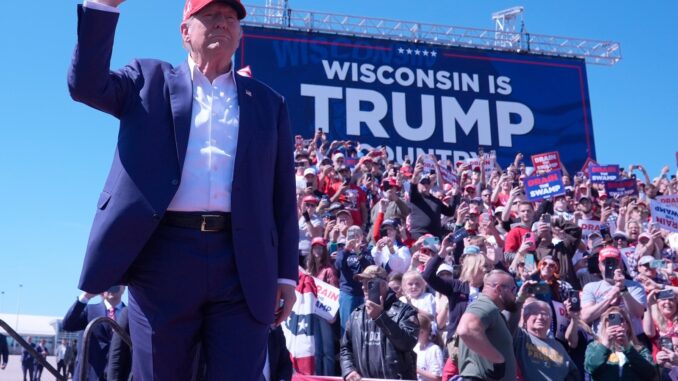
WASHINGTON — WASHINGTON (AP) — Donald Trump has signaled support for a potentially historic federal policy shift to reclassify marijuana as a less dangerous drug, putting his position in line with that of his Democratic opponent, Kamala Harris.
The commonality reflects a major shift toward broad public support for legalization in recent years and marks the first time that both major-party presidential candidates support broad cannabis reform, according to the U.S. Cannabis Council.
The Republican presidential nominee posted on his social media platform late Sunday that he would “continue to focus on research to unlock the medical uses of marijuana to a Schedule 3 drug,” and also said he would be voting “yes” on a proposal to allow the sale of marijuana to adults for any reason in Florida.
Coming shortly before the two will meet for a pivotal debate, Trump’s post sets up the possibility that he could criticize Harris for her past cannabis prosecutions when she was district attorney in San Francisco. Because drug prosecutions disproportionately affect nonwhite defendants in the U.S., the line of attack could also fit with Trump’s efforts to increase his support among nonwhite men.
Harris backs decriminalization and has called it “absurd” that the Drug Enforcement Administration now has marijuana in the Schedule I category alongside heroin and LSD. Earlier in her career, she oversaw the enforcement of cannabis laws and opposed legalized recreational use for adults in California while running for attorney general in 2010.
Harris has absorbed attacks on her prosecutorial record on the debate stage before, most notably from Democrat-turned-Trump supporter Tulsi Gabbard, who ran for the Democratic presidential nomination in 2020 and announced in 2022 that she was leaving the party.
Trump said during his 2016 run that pot policy should be left up the states. During his term in the White House, though, then-Attorney General Jeff Sessions lifted an Obama-era policy that kept federal authorities from cracking down on the marijuana trade in states where the drug is legal.
The DEA process to change the drug’s federal classification is already underway, kickstarted by President Joe Biden’s call for a review. But the DEA hasn’t made a final decision on the shift, which would not legalize recreational marijuana outright. It may not decide until the next presidential administration, putting a spotlight on the candidates’ positions.
Federal drug policy has lagged behind that of many states in recent years, with 38 having already legalized medical marijuana and 24 legalizing recreational use.
About 70% of adults supported legalization in a Gallup poll taken last year, the highest level yet recorded by the polling firm and more than double the roughly 3 in 10 who backed it in 2000. Support was even higher among young voters, a key demographic in seven main battleground states.
“We believe cannabis reform is a winning issue,” said David Culver, senior vice president of public affairs at the U.S. Cannabis Council, in a statement Monday.
The federal policy shift would wouldn’t legalize marijuana outright for recreational use. Instead, it would move marijuana out of Schedule I to the Schedule III category, alongside ketamine and some anabolic steroids.
The proposed shift is facing opposition from advocates who say there isn’t enough data and from attorneys general in more than a dozen states, according to the group Smart Approaches to Marijuana.
___
Associated Press writer Bill Barrow in Atlanta contributed to this report.


Be the first to comment